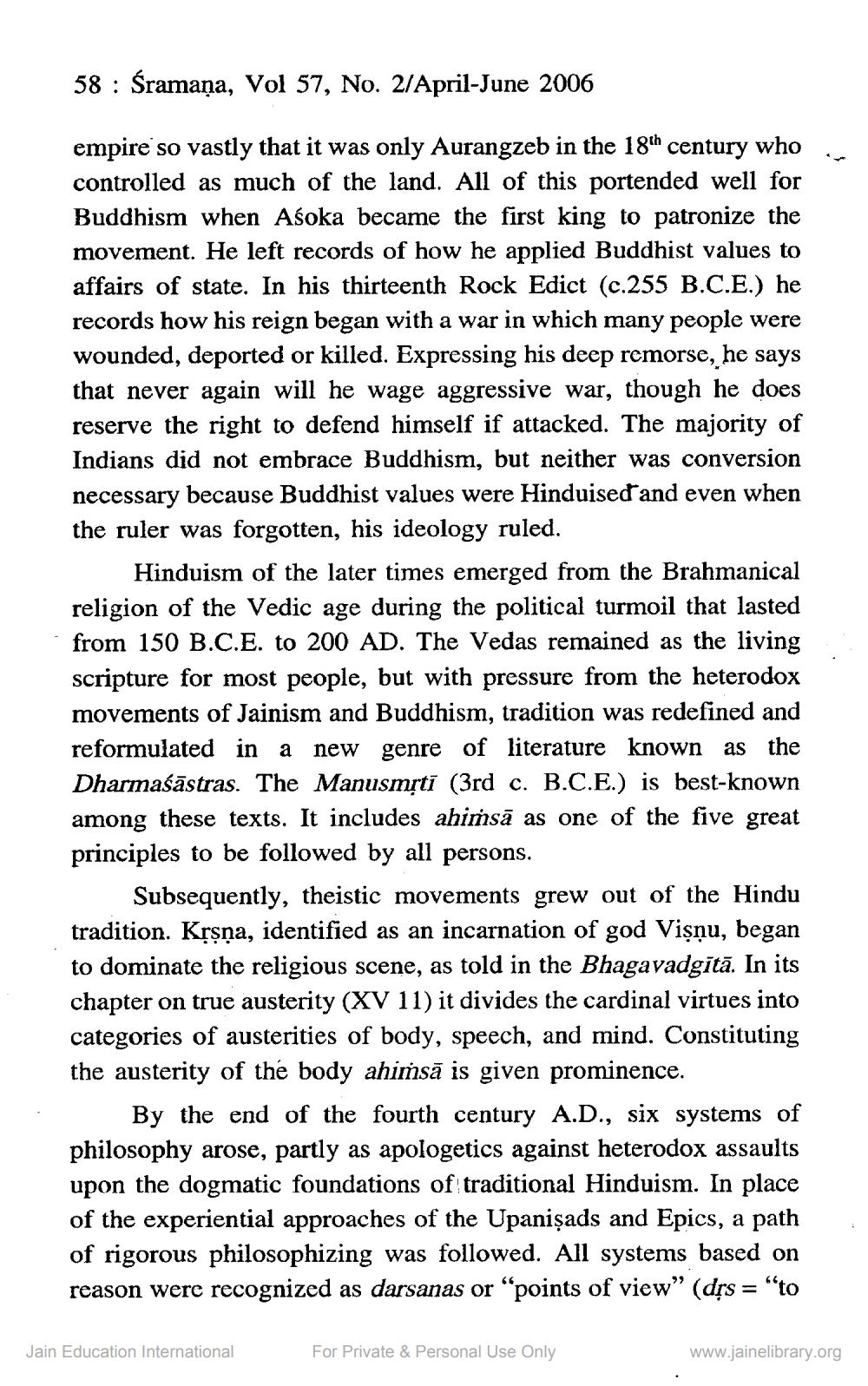________________
58 : śramaņa, Vol 57, No. 2/April-June 2006
empire so vastly that it was only Aurangzeb in the 19th century who controlled as much of the land. All of this portended well for Buddhism when Aśoka became the first king to patronize the movement. He left records of how he applied Buddhist values to affairs of state. In his thirteenth Rock Edict (c.255 B.C.E.) he records how his reign began with a war in which many people were wounded, deported or killed. Expressing his deep remorse, he says that never again will he wage aggressive war, though he does reserve the right to defend himself if attacked. The majority of Indians did not embrace Buddhism, but neither was conversion necessary because Buddhist values were Hinduised and even when the ruler was forgotten, his ideology ruled.
Hinduism of the later times emerged from the Brahmanical religion of the Vedic age during the political turmoil that lasted from 150 B.C.E. to 200 AD. The Vedas remained as the living scripture for most people, but with pressure from the heterodox movements of Jainism and Buddhism, tradition was redefined and reformulated in a new genre of literature known as the Dharmaśāstras. The Manusmrti (3rd c. B.C.E.) is best-known among these texts. It includes ahiṁsā as one of the five great principles to be followed by all persons.
Subsequently, theistic movements grew out of the Hindu tradition. Krsna, identified as an incarnation of god Vişņu, began to dominate the religious scene, as told in the Bhagavadgitā. In its chapter on true austerity (XV 11) it divides the cardinal virtues into categories of austerities of body, speech, and mind. Constituting the austerity of the body ahiṁsā is given prominence.
By the end of the fourth century A.D., six systems of philosophy arose, partly as apologetics against heterodox assaults upon the dogmatic foundations of traditional Hinduism. In place of the experiential approaches of the Upanișads and Epics, a path of rigorous philosophizing was followed. All systems based on reason were recognized as darsanas or “points of view” (drs = "to
Jain Education International
For Private & Personal Use Only
www.jainelibrary.org




